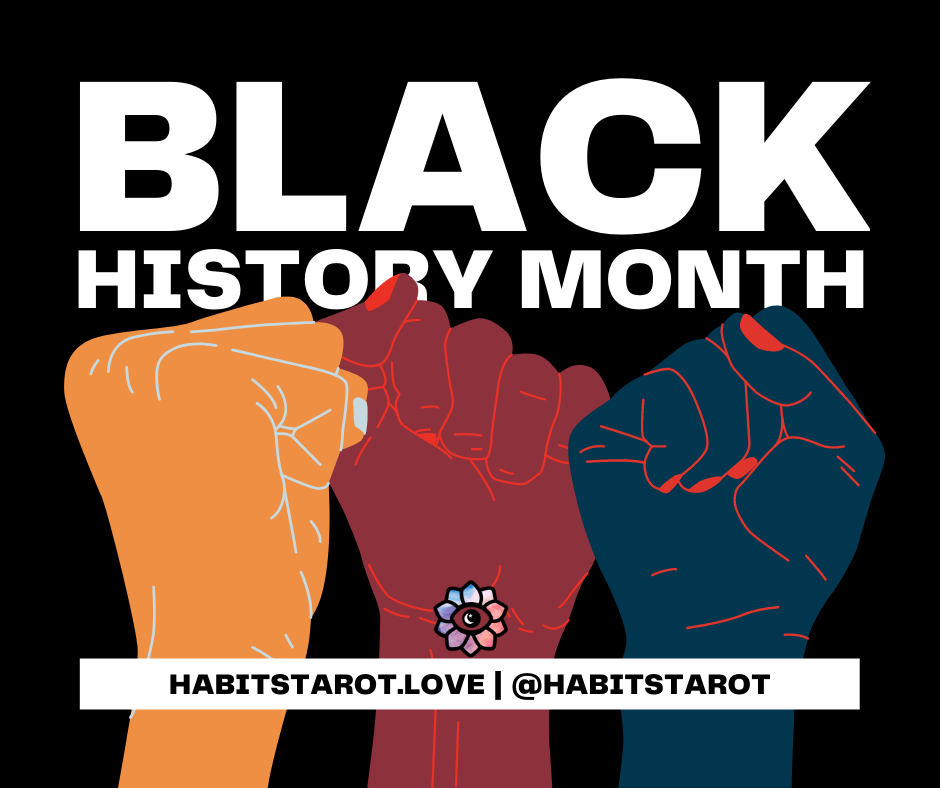
Celebrating Black History Month - James Baldwin
HABITS TarotShare
James Baldwin: A Literary Luminary in Black History Month
As the month of February unfolds each year, we immerse ourselves in the rich tapestry of Black History Month, a time of reflection, celebration, and remembrance. Among the countless luminaries who have left an indelible mark on the annals of black history, James Baldwin stands as a towering figure—a writer, activist, and visionary whose words continue to resonate with profound relevance in our contemporary world.
Born on August 2, 1924, amidst the bustling streets of Harlem, New York City, Baldwin's formative years were steeped in the complexities of the black experience. The vibrant tapestry of Harlem provided the backdrop for his early encounters with racial prejudice and societal inequities. These experiences, etched into the fabric of his being, would fuel his lifelong commitment to social justice and inform his literary explorations.
Baldwin's upbringing in Harlem, a cultural epicenter of black life and creativity, served as a crucible for his burgeoning intellectual and artistic sensibilities. From an early age, he was exposed to the kaleidoscope of voices, perspectives, and struggles that defined the black experience in America. These formative experiences would shape his worldview and imbue his writing with an unparalleled depth of insight and empathy.
At the heart of Baldwin's literary oeuvre is a profound exploration of the human condition—the intricate tapestry of joys, sorrows, aspirations, and fears that bind us together as a species. Through works such as "Go Tell It on the Mountain," "The Fire Next Time," and "Notes of a Native Son," he fearlessly delved into the labyrinthine depths of human existence, confronting head-on the raw realities of racism, oppression, and the quest for identity.
In "Go Tell It on the Mountain," Baldwin drew upon his own experiences growing up in Harlem to craft a searing portrait of a young man's struggle with faith, family, and self-discovery. Set against the backdrop of the Black church, the novel explores themes of redemption, forgiveness, and the enduring legacy of slavery on the African American psyche.
"The Fire Next Time," perhaps Baldwin's most celebrated work, is a blistering indictment of racial injustice and a stirring call to arms for a new era of social change. In this seminal essay, Baldwin lays bare the festering wounds of America's racial divide, issuing a powerful plea for empathy, understanding, and reconciliation.
Throughout his career, Baldwin remained acutely attuned to the intersections of race, sexuality, and identity—a reflection of his own complex journey as a gay Black man in mid-20th century America. His exploration of these themes was groundbreaking in its honesty, nuance, and emotional depth, challenging prevailing stereotypes and societal norms with unflinching courage.
Yet, Baldwin's impact extended far beyond the realm of literature. At the height of the Civil Rights Movement, he emerged as a powerful voice for change, using his platform to advocate tirelessly for equality, justice, and human rights. His impassioned speeches, essays, and interviews articulated the frustrations and aspirations of Black Americans, galvanizing a generation to confront systemic injustice with unwavering resolve.
Despite facing vitriolic backlash and personal hardships, Baldwin remained steadfast in his commitment to speaking truth to power. His unwavering courage served as a beacon of hope for marginalized communities, inspiring countless individuals to rise up against oppression and demand a more just and equitable society.
As we honor James Baldwin during Black History Month, we are reminded not only of his towering achievements but also of the enduring relevance of his work in today's world. The issues he grappled with—racism, inequality, and the pursuit of social justice—remain urgent imperatives in our contemporary landscape. Baldwin's insights into the human condition continue to transcend temporal and spatial boundaries, offering invaluable lessons for navigating the complexities of our shared humanity.
In commemorating Baldwin's legacy, we must heed his call to action—to confront injustice with courage and compassion, to amplify the voices of the marginalized, and to strive tirelessly for a world where equality and dignity are not mere aspirations but tangible realities. Black History Month serves as a poignant reminder of the resilience and creativity of the Black community, honoring the contributions of trailblazers like James Baldwin who paved the way for progress and inspired future generations to continue the fight for justice and equality.
In conclusion, James Baldwin's profound impact on literature, activism, and the collective consciousness of humanity solidifies his status as a literary luminary in Black History. His writings continue to challenge, inspire, and provoke us to confront uncomfortable truths, igniting a fervent determination to forge a more just and equitable society. As we pay tribute to his legacy during Black History Month, let us carry forth his torch of resilience, empathy, and unwavering commitment to the pursuit of justice for all.
"Not everything that is faced can be changed but nothing can be changed until it is faced." -James Baldwin
Seeking guidance in your life? HABITS Tarot is here to guide you in any aspect of life.


